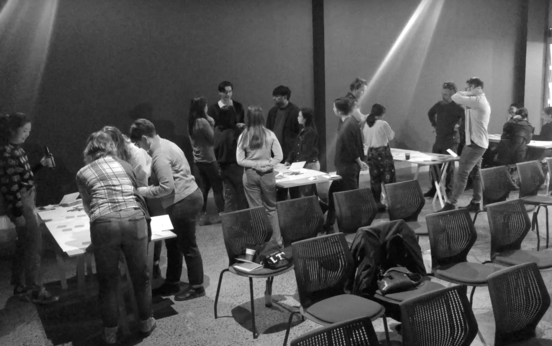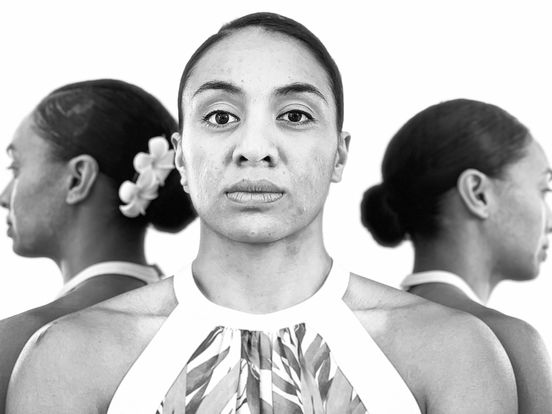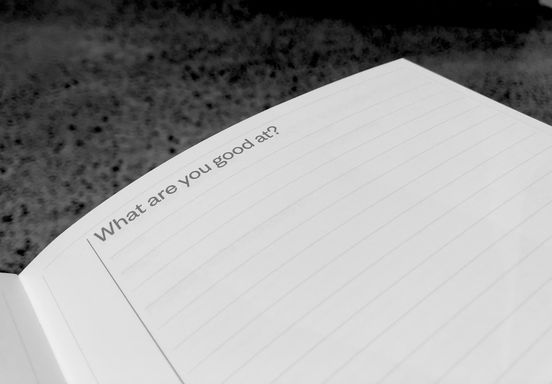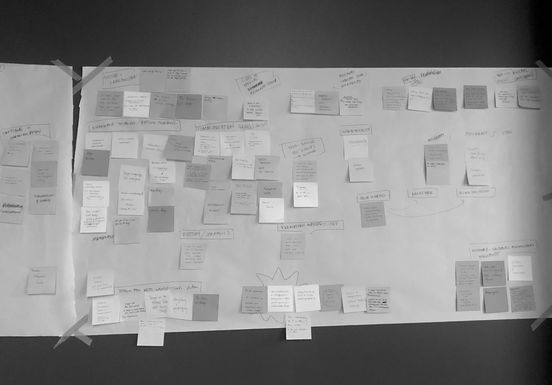-
Author
Demelza Round, Anjuli Selvadurai and Nathan Walker -
Date
1 Sep 2020
Essay
Project Make: Supporting ‘Connected’ Making
Making stuff is hard work. Making stuff that you're proud of is even harder. Making stuff in the middle of a global pandemic is a whole different ball game.
Project Make aims to expand the definition of what design includes, who a designer is and who gets to be one. We bring together designers, makers, educators and students to develop projects for the wider community. These projects are available as online courses and physical workshops and can be customised for specific audiences. We seek to establish and maintain meaningful connections between teachers and learners and recognise that making is the activity that brings us together as a design community. Project Make exists to support a collaborative approach to design education that is representative of Aotearoa's different sectors, fields and cultural diversity.
We are currently a small community of makers who understand the importance of sharing our knowledge to support each other through the process of learning to make. Our core team is made up of three Tāmaki-makau-rau -based humans who by day work as an art and technology teacher, a graphic designer/web developer and an artist/online learning coordinator. We draw on a network of local and international collaborators to write and deliver ‘projects’ that people can work their way through on the Project Make website. Projects can be short and technical, or they can be more involved, conceptual and fit a ‘design brief’ format.
We are interested in challenging traditional Eurocentric notions of design, and although that’s a journey we’ve only just started, our existing projects reflect the backgrounds and perspectives of those who have developed them. To that end, we customise projects to suit communities that express interest in them; such as the Self-Portrait Project that was extended for Tangaroa College as a response by the school to help support student wellbeing post-lockdown.
Speaking of lockdown, the first lockdown was the push we needed to finally get the website live. With many teachers and students reaching out for help and support, we felt it was the right time to road test what we’d been working on for the better part of three years. We realised that it was a good time to gauge the potential for future collaborations. We reached out to the professional making community knowing they might be having a rough time as well and offered them a distraction; to help develop the Art in Isolation Project and to complete a project that had been created, documenting their process for the blog section of the site. This highlighted the trials and tribulations of making from home, going back to basics and the importance of being part of a community in times of isolation.
As our collaborators started working outside of their comfort zone and sharing their process we noticed a common theme: imposter syndrome. This is something usually associated with people who are out of their depth as opposed to seasoned professionals, and yet it is something most makers will feel at some point. It became clear that our focus should be less about crafting projects for educators and students and more about establishing meaningful relationships between members of the design and making community to foster mutual support and remind us that feelings of inadequacy are not uncommon and through sharing our failures we all grow as designers and makers. We also believe strongly in the need to actively expand who is included within the traditional ‘design’ community.
In July we held a workshop where we asked our attendees what they wanted to see online and what they wanted to help us write. Not only was the outcome a selection of pretty exciting ideas, it also emphasised the importance of connecting in person. Although we endeavor to have all of our resources available online, we can’t deny the magic and mayhem of connecting in person, especially when you're trying to learn a skill or work collaboratively. Covid permitting, our aim is to run workshops in support of our projects for those who prefer to connect in person. The workshops will include how to teach the projects, if you are an educator who wants to deliver the project, as well as for those who want to simply learn the skills involved in completing the project.
So, where to next? Project Make is in it for the long game. Reflective of the design process, this includes trial and error and being adaptable as our community develops. The next major step is to secure enough funding to develop as many projects as we have lying ‘in wait’, and to continue to refine how we communicate the content of our projects to be as inclusive and responsive to people and their learning styles as possible.
Making is the activity that the community has in common, but the real magic is in our connection as people. Project Make believes that 'connected making' could be how design is used to make a positive impact on ourselves, others and the spaces we all occupy. This seems especially relevant at the time where the very meaning of connectedness is being challenged.
--
Find out more at project-make.com

Collaboration in action at a Project Make workshop

Self portrait project

Project Make Handbook

Potential projects